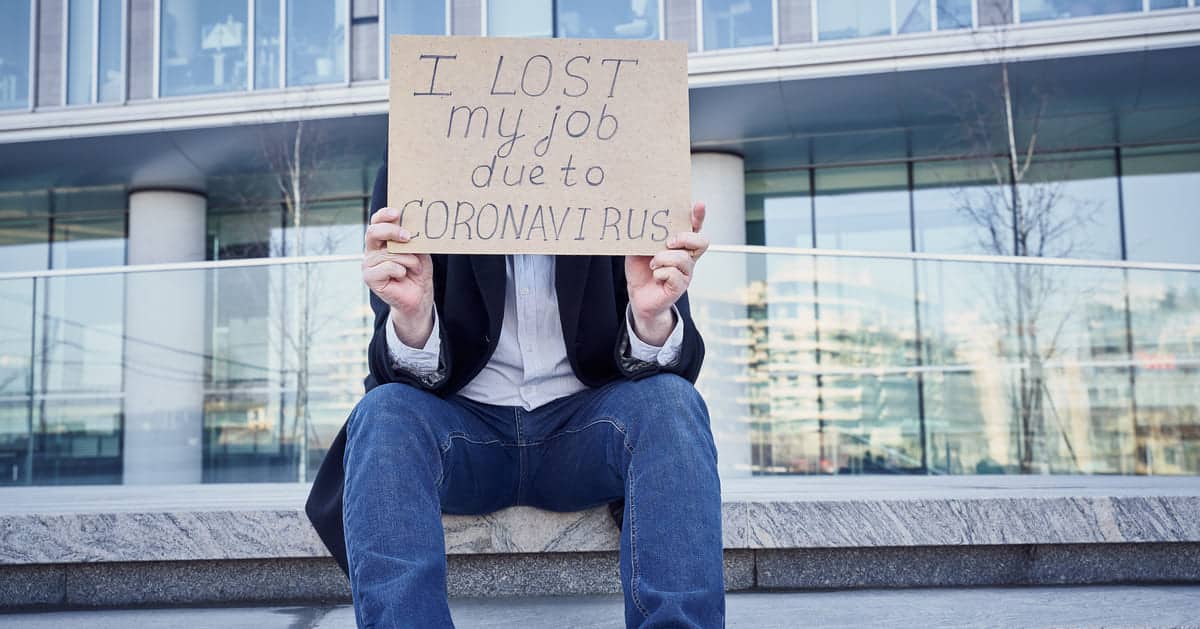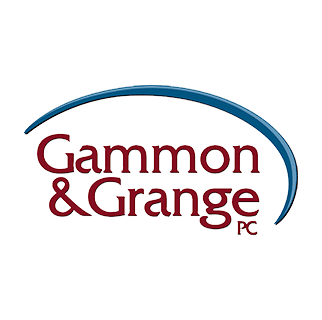Background: To explain key relief for 501(c)(3) nonprofits and small businesses in the $2 Trillion CARES Act (complete text), we published our CARES Act Alert #1 (Help for Small Businesses & 501(c)(3)s via the PPP); CARES Alert #2 (Get Ready to Apply); CARES Alert #3 (PPP vs EIDL), CARES Alert #4 (Treasury Guidance), CARES Alert #5 (SBA’s Interim Final Rule), CARES Alert #6 (IFR on Affiliation & Religious Nonprofits); and CARES Alert #7 (FBO Guidance). Over $350 Billion of the CARES Act is meant for small entities – small businesses and 501(c)(3)s, including Faith-Based Organizations (FBOs) – with no more than 500 employees. Most of this money flows through two loan/grant programs administered by the Small Business Administration (SBA): Economic Injury Disaster Loan (EIDL) and Paycheck Protection Program (PPP). To govern these programs, the SBA recently issued the following guidance:
-
- Interim Final Rule (IFR) governing most aspects of the PPP (IFR-PPP) (see our Alert #5).
- IFR on Affiliation Rules for assessing size of FBO applicants (IFR-Affiliation) (Alert #6).
- FAQs providing further guidance to FBO applicants (FBO FAQs) (Alert #7).
This CARES Act Alert #8 focuses on the Act’s significant expansion of unemployment benefits. Such benefits are vital for many individuals and employers – whether nonprofits, FBOs, or churches. In this regard, the Department of Labor (DOL) just published guidance on April 5: Unemployment Insurance Program Letter 16-20 (UIPL 16-20) interpreting the CARES Act. In this Alert, we summarize key features of the Act’s expansion of unemployment benefits. We also note items employers should consider if they do pursue layoffs or other changes in conditions of employment.
A. CARES Act’s Expansion of Unemployment Benefits.
As discussed in previous Alerts above, the PPP part of the CARES Act makes nearly $350 Billion in loans available to help small entities maintain their payrolls in the short term. The basic loan is 2.5X average monthly payroll costs, to help support two months of payroll plus certain other costs (mainly utilities, rent, and mortgage interest). These loans provide up to full forgiveness to applicants who retain or quickly rehire their employees and maintain salary levels. Forgiveness declines if full-time headcount declines, or if salaries and wages decrease by more than 25 percent.
Some small entities may choose not to pursue PPP loans, however. For a variety of COVID-19 related reasons, many such entities have made or will make the difficult decision to terminate employees and wonder what unemployment benefits are available to them. The
unemployment benefit provisions of the CARES Act provide various kinds of relief where individuals lose their employment for COVID-19 related reasons, including for certain nonprofit employees. In its additional guidance (
UIPL 16-20), DOL also clarifies that unemployment relief can be available for
church employees who normally would not be eligible for unemployment benefits.
Here are five key items in the CARES Act’s unemployment benefit provisions:
1. Significantly Expanded Eligibility for Unemployment Benefits.
Section 2102 of the CARES Act establishes a temporary (through December 31, 2020) Pandemic Unemployment Assistance (PUA) program. This program makes unemployment benefits available to certain individuals affected by COVID-19 who would otherwise “not qualify for regular unemployment or extended benefits under State or Federal law,” including independent contractors, self-employed individuals, and individuals with limited work histories. As discussed below, this can also include employees of churches or organizations controlled by churches (like certain religious schools) who ordinarily are not eligible for unemployment insurance benefits.
To be eligible for PUA program benefits, individuals must self-certify that they are able and available to work within the meaning of applicable state law, but are unemployed, partially unemployed, or unable or unavailable to work due to at least one of the following:
-
- They have been diagnosed with COVID-19 or are experiencing symptoms and are seeking a medical diagnosis.
- A member of their household has been diagnosed with COVID-19.
- They are providing care for a family member or household member who has been diagnosed with COVID-19. (UIPL 16-20 specifies that an “individual who is assisting a family member who is able to adequately care for him or herself is not providing care under this category.”)
- A child or other member of the household for which the individual has primary caregiving responsibility is unable to attend school or another facility because of the COVID-19 emergency and the individuals cannot work because of the need to provide care to that child or household member. (UIPL 16-20 specifies that this category “includes an individual whose job allows for telework, but for whom the provision of care to the child or other person with a closed school or other I-5 facility requires such ongoing and constant attention that it is not possible for the individual to perform work at home.”)
- They are unable to reach their place of work because of a quarantine order imposed as a direct result of COVID-19. (UIPL 16-20 specifies that this includes a state or municipal travel restriction imposed to combat the spread of COVID-19.)
- They are unable to reach their place of employment because they have been advised to self-quarantine by a healthcare provider as a result of COVID-19.
- They were scheduled to begin employment but now do not have a job or cannot reach the job as a direct result of COVID-19.
- They have become the breadwinner or major supporter for a household because the head of the household has died as a direct result of COVID-19.
- They had to quit their job as a direct result of COVID-19.
- Their place of employment is closed as a direct result of COVID-19.
The Act specifies that individuals are not eligible for unemployment benefits if they are able to
telework with pay or are receiving paid sick leave or other paid benefits, including paid leave under the Families First Coronavirus Response Act (
FFCRA). See our
FFCRA Alert (March 27, 2020).
2. Church Employees Can Be Eligible for Unemployment Benefits Under PUA Program.
Under normal circumstances, employees who are terminated by a church (or an organization controlled by a church) are not eligible for unemployment benefits. This is because federal law and nearly all states exempt from unemployment taxes all services performed while employed by a church, a convention or association of churches, or an organization that is operated primarily for religious purposes and that is operated, supervised, controlled, or principally supported by a church or convention or association of churches. Because churches do not pay unemployment taxes, their employees normally are not eligible for unemployment benefits when employment is terminated.
But the PUA program exists precisely for those individuals who are not typically eligible for unemployment benefits. Because they normally are excluded from such benefits, church employees who are terminated appear to fit within the CARES Act category of those who do “not qualify for regular unemployment or extended benefits under State or Federal law.”
DOL’s
UIPL 16-20 adopts this interpretation. It says the CARES Act provides “coverage for individuals who are not eligible for regular [unemployment compensation] (such as individuals who are self-employed or who have limited recent work history). These individuals may also include certain gig economy workers,
clergy and those working for religious organizations who are not covered by regular unemployment compensation, and other workers who may not be covered by the regular [unemployment compensation] program under some state laws.” The guidance also goes on to say “Self-employed individuals” as defined in 20 CFR §625.2(n) “means individuals whose primary reliance for income is on the performance of services in the individual’s own business, or on the individual’s own farm. These individuals include independent contractors, gig economy workers,
and workers for certain religious entities.” (The emphasis above is ours.)
While
UIPL 16-20 provides that church employees can be eligible for unemployment benefits under the CARES Act, state unemployment agencies may be unfamiliar with claims filed by church employees. Churches (or organizations controlled by churches such as religious schools) may wish to help terminated employees with their unemployment applications to ensure they can get these important benefits. Our CARES Act Team is available to assist with this process.
In addition, churches and other nonprofits may regularly retain independent contractors to perform certain tasks, such as musicians for Sunday morning worship, but have temporarily ceased using them due to COVID-19. Such independent contractors potentially may benefit from the expanded unemployment benefits. Since they may also qualify for a PPP loan/grant, these individuals should carefully weigh their options regarding which benefit is best for them.
3. Relief is Available for Certain Nonprofit Employers to Fund Unemployment Benefits.
Section 2103 of the CARES Act sets aside federal funds for states to reimburse 501(c)(3) nonprofits for 50 percent of amounts they pay for unemployment benefits between March 13, 2020 and December 31, 2020. This benefit applies to nonprofits who have elected the reimbursement method for unemployment insurance coverage and who would otherwise have to make payments for terminated employees seeking unemployment benefits. (This provision does not apply to churches or organizations controlled by churches who have been exempt from paying unemployment taxes.) Nonprofit employers who need help obtaining such reimbursements in the future may contact our CARES Act Team to assist with this process.
4. Those Who Are Eligible for Unemployment Benefits Can Obtain Expanded Benefits.
In Section 2104 of the CARES Act, the Pandemic Unemployment Compensation (PUC) program increases the standard amount of unemployment insurance available to those who are eligible for unemployment benefits. This program provides federal funding for an additional $600 per week on top of the benefits an individual would otherwise receive under state law. This program runs for four months (through July 31, 2020).
In addition, Section 2107 provides that the federal government will fund up to a maximum of 13 additional weeks of “pandemic emergency unemployment compensation” in situations where an individual is still unemployed after exhausting normal benefits under state law. This provision means that up to 39 weeks of unemployment benefits are available to an individual.
5. Employers May Need to Choose Between PPP Loans and Terminating Employees.
An employer desiring to help its employees through these difficult times should thoughtfully choose the best approach for their employees. PPP loans available through the SBA can provide two months of funding toward payroll costs to keep employees employed. These loans carry up to full forgiveness, but forgiveness amounts will decline if full-time headcount declines, or if salaries and wages decrease by more than 25 percent. An employer who obtains a PPP loan but then terminates employees on the assumption they can get the expanded unemployment benefits will lose some or all of the PPP’s forgiveness incentive (and have to repay up to the full loan amount).
B. Reminder to Employers Considering Layoffs or Changes in Conditions of Employment.
For any small entity – whether small business, nonprofit, or church – who is making the difficult decision to terminate some or even most of its employees, it should do so with care. Even during these unprecedented days of COVID-19, all applicable employment laws and contractual language still must be followed when terminating employment or changing conditions of employment. The new paid sick leave and expanded Family & Medical Leave Act provisions of the Families First Coronavirus Response Act must also be considered. See our
FFCRA Alert (March 27, 2020).
Our CARES Act Team is available to help you navigate these difficult issues, including the unique issues faced by nonprofits, religious organizations, and churches.
* * * * *
For assistance, please contact one of our attorneys:
Nancy LeSourd,
Matthew Szymanski,
Scott Ward, or
Derek Gaubatz. Our CARES Act Team also includes our non-attorney consultant Phil Eskeland. Mr. Szymanski and Mr. Eskeland bring experience from their past service, respectively, as the chief of staff and the deputy chief of staff of the Small Business Committee of the U.S. House of Representatives, including during the legislative response to 9/11. More Alerts to follow.






